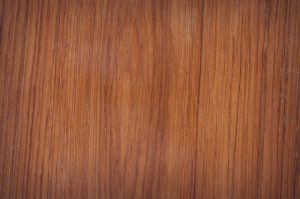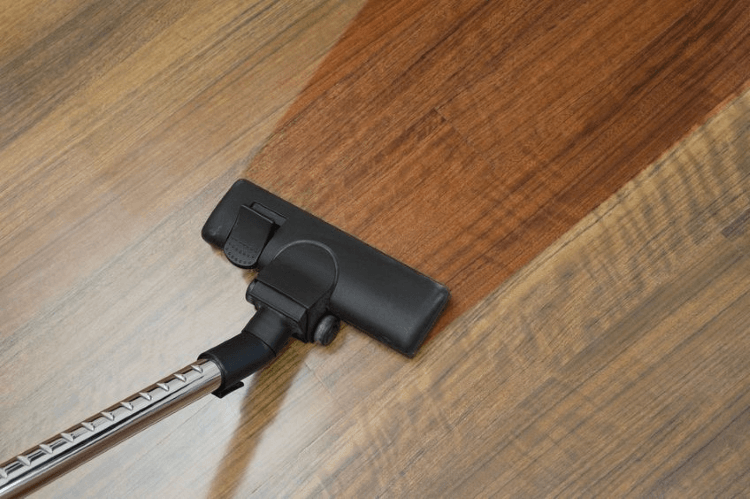You might have some beautiful hardwood floors in your home and you want to clean them – but you might be hesitant to use a vacuum cleaner on them. If this sounds like you, you are not alone; you actually made a very smart choice that may well have prevented damage on your hardwood floors.
When it comes to hardwood floors, they’re more like a double-edged sword; they look absolutely beautiful, but they are a total pain to maintain. If you use the wrong type of vacuum cleaner on them, you’ll permanently damage them for life! However, that doesn’t mean that there’s nothing you can use on them. Believe it or not, there are great cleaners that will work wonders on your floor. Some vacuums are suited for hardwood floors, and others for carpets. Many vacuums can clean both surfaces very well too.
The first question to answer is whether the vacuum you’re using is damaging your floors, as well as knowing what features or accessories are best for your floors. Plus, in the future, you’ll be better off knowing exactly what to look for so that you can find the best vacuum cleaner for your beautiful hardwood floors.
How Can Vacuum Cleaners Damage Your Hardwood Floors?

Just because you have an upright vacuum cleaner, doesn’t mean you can just use it on your hardwood floor without worrying about damaging them. Even though it might guarantee you very strong suction power, its design is primarily for your rugs and carpets, as it stirs all the debris and dirt that are present in your carpet fibers. A beater brush also performs similarly, since it has bristles that are made from stiff nylon.
Beater brushes are generally used on carpets for the majority of the time. The excessive, aggressive agitation, and the very rough bristles of the beater brush will scrape the floor and leave scratches.
Note: Even if you switch off the beater bar in an upright vacuum cleaner, you should still avoid using it on a hardwood floor. This is because of its wheels, which are quite heavy and will eventually leave scratches on your floor.
Upright vacuum cleaners are also out of the question. So, what’s left to pick from that won’t damage your floors?
So, What Kind of Vacuum Cleaner Should I Use?
Because we’ve clearly established that upright vacuums are out of the question, is there anything you can use?
The answer is yes, and you have more options than you might think.
Canister Vacuums – These are significantly lighter, which means no more damage risks for your floor. They don’t have a rotating beater bar, but they will be somewhat awkward for everyday use. However, this is still a good option, considering your alternative is a dustpan and broom.
Lightweight Stick Vacuum Cleaner – This is the most ideal option for use on hardwood floors. They won’t scrape your floor because they lack any stiff bristles on their head (in fact, they only have an attachment for carpets, and another for bare floors). They also happen to be cordless – at least most of them, which also means it’s easy for you to use them for a very quick clean-up. You’ll be able to clean up your house easily – whether you have several pets, a family gathering, or just aren’t the cleanest person.
How Often Should You Vacuum?
The truth is that there’s no universal or set rule that dictates how often you should vacuum your hardwood floors. If the floor is in a low-traffic area, once a week is usually more than sufficient. If it’s a high-traffic area, you should probably vacuum that area more often.
Basically, you need to maintain hardwood floors as best as possible. If there are any spills, you need to clean them immediately with a microfiber soft cloth – otherwise, it’ll damage the floor and leave it dull and scratched. In the same way, you need to make sure any mop you use is made from microfiber, instead of the usual mops that can cause small scratches on the surface of your floors.
Another thing to keep in mind is you should use the appropriate polishing materials when cleaning your floor. Water is typically not the best cleaning agent. There are products made specifically for hardwood floors. Here are a few you can choose from.
If you prefer to make a hardwood floor cleaner yourself with natural ingredients, I have a post here on how to clean hardwood floors with vinegar and olive oil.
If you need to buff your floor, the general rule is to do it every 3 to 5 years, which maintains them, keeps them looking like new, and will increase their life span.
If you decide to use a broom (in the case of very small debris or dust), then make sure to use a broom that has soft bristles, or a microfiber mop. Keep in mind that vacuuming is ultimately the better, faster, and more efficient alternative.
Final Thoughts
When it comes to your hardwood floors, the commitment to daily vacuuming will keep them clean, lengthen their life, and is a much better option than sweeping – simply because vacuums will suck up any dirt or dust that could potentially be trapped between, in, or around your hardwood floors. However, vacuuming every single day is something that a majority of people don’t have the time or energy to do. If you can manage to vacuum at least once a week or more, along with regular maintenance of your floors, they should last a very long time.

if only i found ur blog before i ruined my hardwood floors with my crappy upright old vacuum!
Very sorry to hear that Kevin. Take a look at our recommended vacuums for hardwood floors.